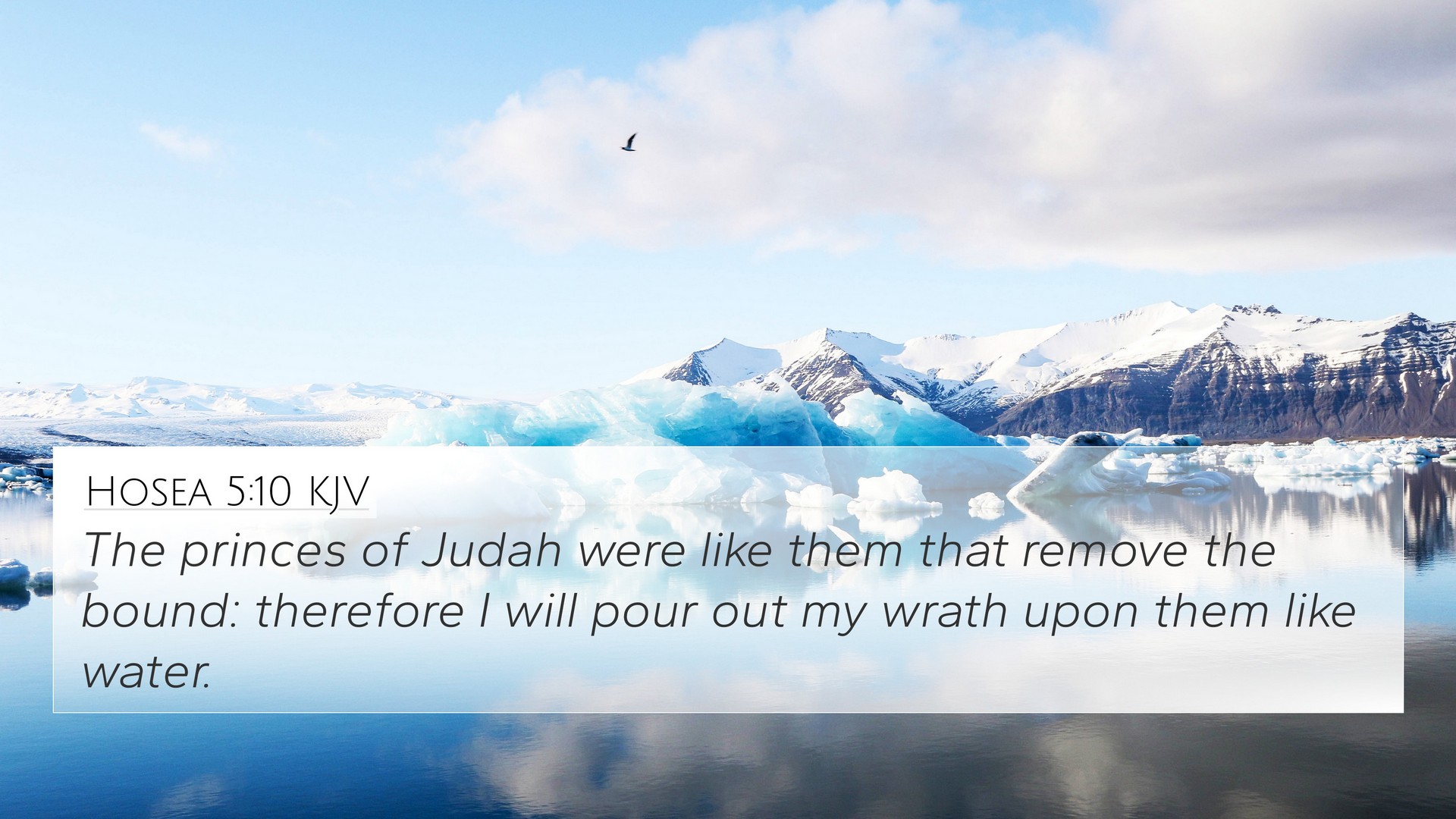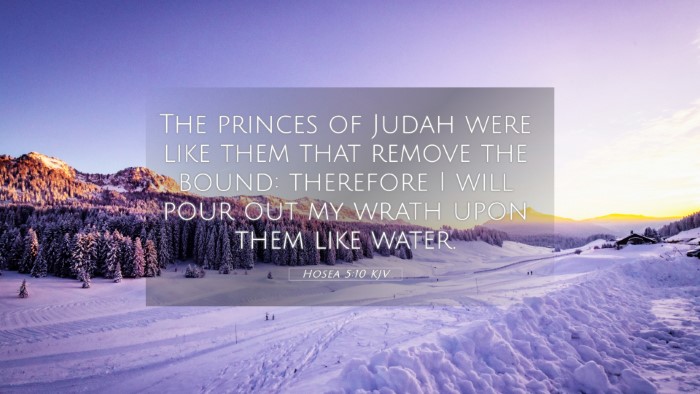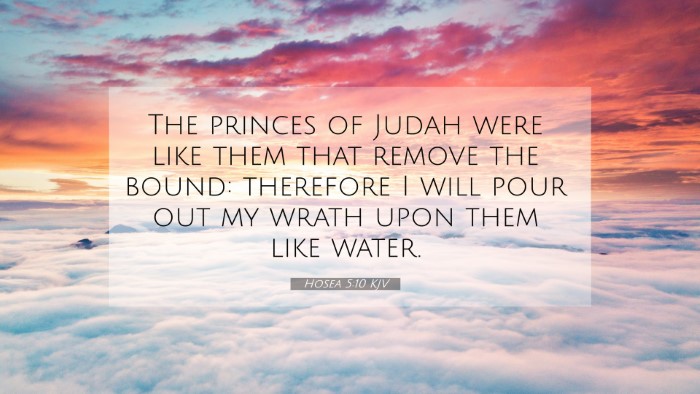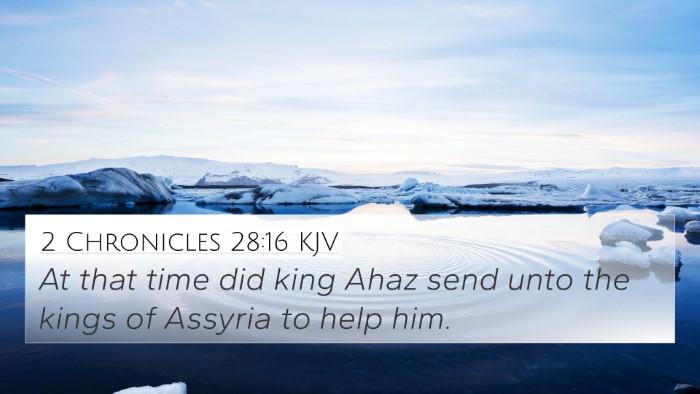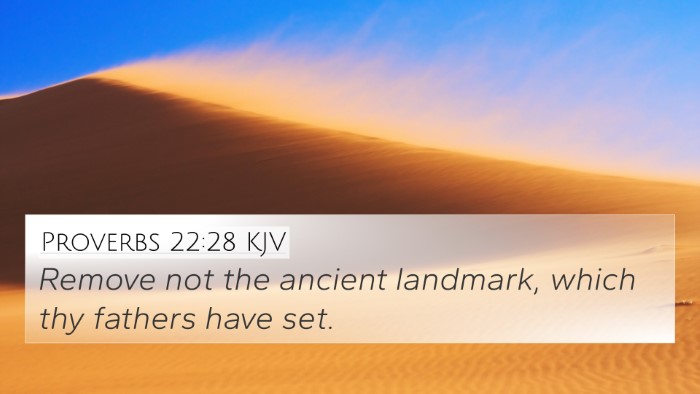Old Testament
Genesis Exodus Leviticus Numbers Deuteronomy Joshua Judges Ruth 1 Samuel 2 Samuel 1 Kings 2 Kings 1 Chronicles 2 Chronicles Ezra Nehemiah Esther Job Psalms Proverbs Ecclesiastes Song of Solomon Isaiah Jeremiah Lamentations Ezekiel Daniel Hosea Joel Amos Obadiah Jonah Micah Nahum Habakkuk Zephaniah Haggai Zechariah MalachiHosea 5:10 Similar Verses
Hosea 5:10 Cross References
The princes of Judah were like them that remove the bound: therefore I will pour out my wrath upon them like water.
Uncover the Rich Themes and Topics of This Bible Verse
Listed below are the Bible themes associated with Hosea 5:10. We invite you to explore each theme to gain deeper insights into the Scriptures.
Hosea 5:10 Cross Reference Verses
This section features a detailed cross-reference designed to enrich your understanding of the Scriptures. Below, you will find carefully selected verses that echo the themes and teachings related to Hosea 5:10 KJV. Click on any image to explore detailed analyses of related Bible verses and uncover deeper theological insights.

Deuteronomy 19:14 (KJV) »
Thou shalt not remove thy neighbor's landmark, which they of old time have set in thine inheritance, which thou shalt inherit in the land that the LORD thy God giveth thee to possess it.
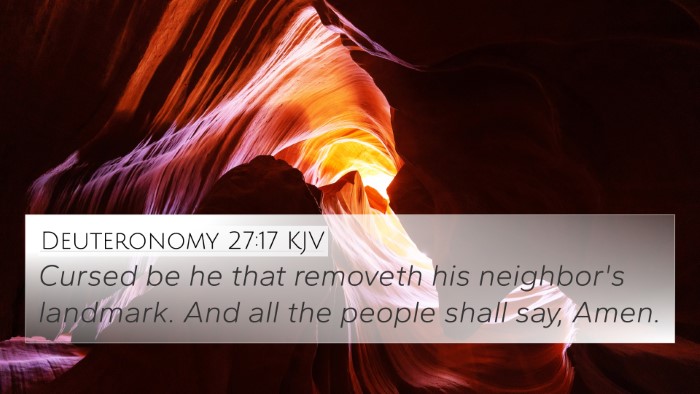
Deuteronomy 27:17 (KJV) »
Cursed be he that removeth his neighbor's landmark. And all the people shall say, Amen.
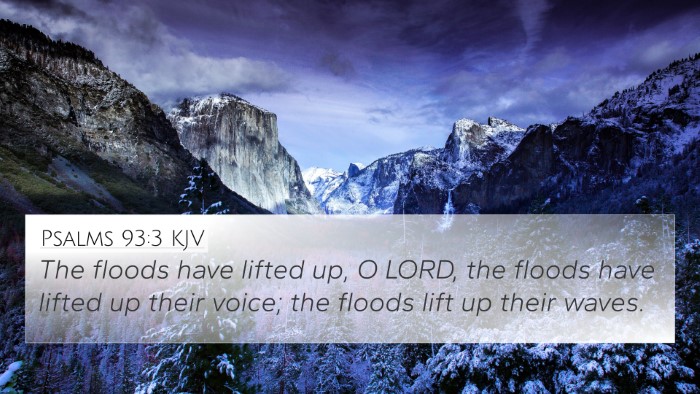
Psalms 93:3 (KJV) »
The floods have lifted up, O LORD, the floods have lifted up their voice; the floods lift up their waves.
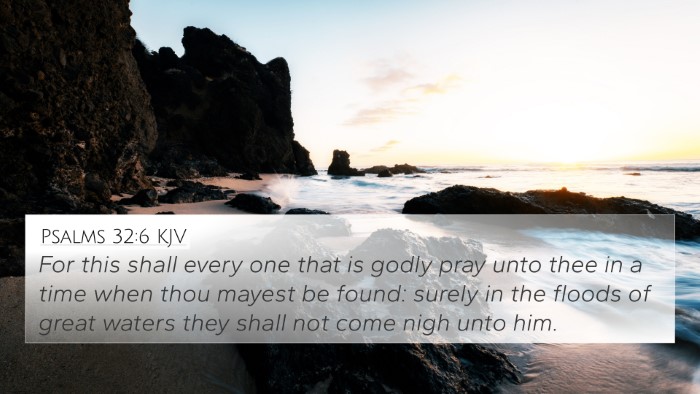
Psalms 32:6 (KJV) »
For this shall every one that is godly pray unto thee in a time when thou mayest be found: surely in the floods of great waters they shall not come nigh unto him.
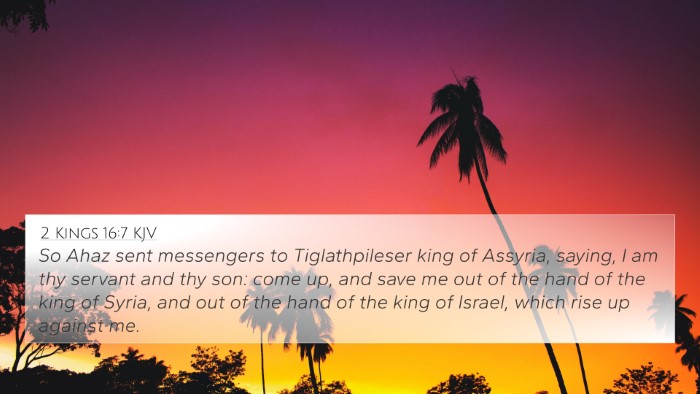
2 Kings 16:7 (KJV) »
So Ahaz sent messengers to Tiglathpileser king of Assyria, saying, I am thy servant and thy son: come up, and save me out of the hand of the king of Syria, and out of the hand of the king of Israel, which rise up against me.
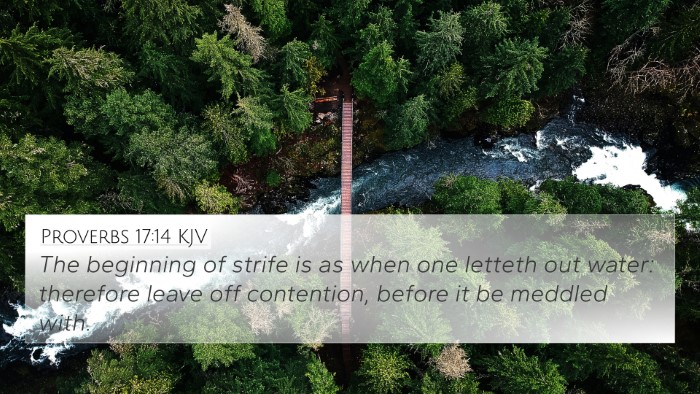
Proverbs 17:14 (KJV) »
The beginning of strife is as when one letteth out water: therefore leave off contention, before it be meddled with.
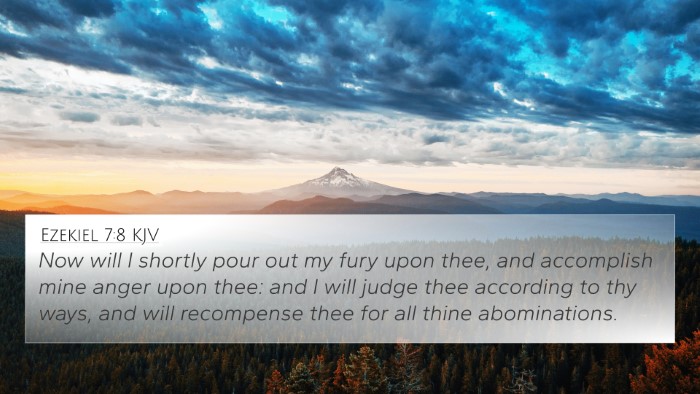
Ezekiel 7:8 (KJV) »
Now will I shortly pour out my fury upon thee, and accomplish mine anger upon thee: and I will judge thee according to thy ways, and will recompense thee for all thine abominations.
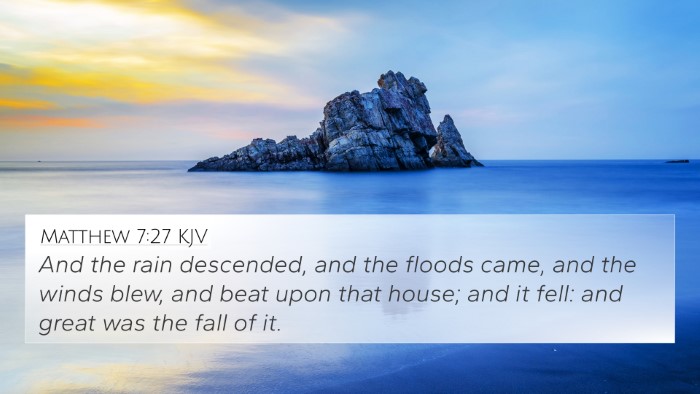
Matthew 7:27 (KJV) »
And the rain descended, and the floods came, and the winds blew, and beat upon that house; and it fell: and great was the fall of it.
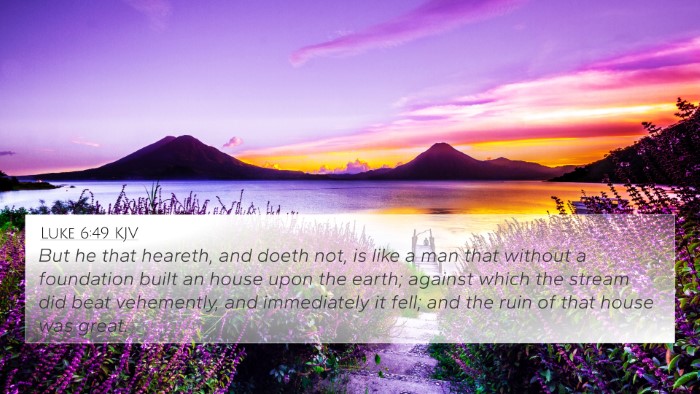
Luke 6:49 (KJV) »
But he that heareth, and doeth not, is like a man that without a foundation built an house upon the earth; against which the stream did beat vehemently, and immediately it fell; and the ruin of that house was great.
Hosea 5:10 Verse Analysis and Similar Verses
Understanding Hosea 5:10
Verse: "The princes of Judah are like them that remove the bound: therefore I will pour out my wrath upon them like water." (Hosea 5:10)
Summary of Meanings from Public Domain Commentaries
The verse from Hosea 5:10 reflects profound themes of divine judgment and moral integrity. The "princes of Judah"—the leaders—are compared to those who "remove the bound," indicating a disregard for established moral limits and the injustice that arises from such actions.
Key Insights
- Matthew Henry's Commentary: Henry highlights that the leaders' actions reflect a systemic failure to adhere to God's commandments. Their treatment of boundaries, both physical and moral, signals a deep-rooted rebellion against divine order.
- Albert Barnes' Notes: Barnes interprets the "wrath" as not merely a reaction but as a just response to the leaders’ deliberate transgressions. He connects this defiance to the broader theme of corporate sin in Israel.
- Adam Clarke's Commentary: Clarke notes that by removing these boundaries, the leaders are causing national instability. The imagery of God's wrath being poured out "like water" illustrates the overwhelming nature of divine judgment that follows such transgressions.
Thematic Connections
This verse serves as a warning against the topical issues of justice and leadership. The leaders' moral failure highlights the vital connection between governance and righteousness, illustrating how sin among rulers can lead to a cascading effect of decay within the nation.
Cross-References
Several Bible verses might relate to Hosea 5:10, offering a broader understanding through cross-referencing:
- Proverbs 22:28: "Remove not the ancient landmark, which thy fathers have set." (Discusses the importance of maintaining moral and ethical boundaries.)
- Isaiah 5:20: "Woe unto them that call evil good, and good evil..." (Echoes the theme of moral perversion among the leaders.)
- Jeremiah 2:13: "For my people have committed two evils; they have forsaken me the fountain of living waters..." (The abandonment of God’s ways leads to dire consequences.)
- Amos 5:10: "They hate him that rebuketh in the gate, and they abhor him that speaketh uprightly." (Highlights societal disdain for righteousness.)
- Ezekiel 18:30: "Therefore I will judge you, O house of Israel, every one according to his ways..." (God's judgment is based on individual and collective actions.)
- Micah 3:1-3: "And I said, Hear, I pray you, O heads of Jacob, and ye princes of the house of Israel..." (Condemns the corrupt leadership of the time.)
- Luke 17:2: "It were better for him that a millstone were hanged about his neck, and he cast into the sea..." (The severity of leading others into sin.)
Importance of Bible Cross-References
Understanding the connections between Bible verses is crucial for deepening one's comprehension of scripture. It allows for enriched study and enables believers to discover themes of justice, leadership, and divine accountability throughout the biblical narrative.
Using tools for cross-referencing, like a Bible concordance or cross-reference guide, can aid in locating these connections effectively.
Conclusion
Hosea 5:10 stands as a stern reminder of the consequences of moral and ethical failures among leaders. It invites readers to reflect on the gravity of their actions, the importance of maintaining divine boundaries, and the nature of God's judgment that follows rebellion.
